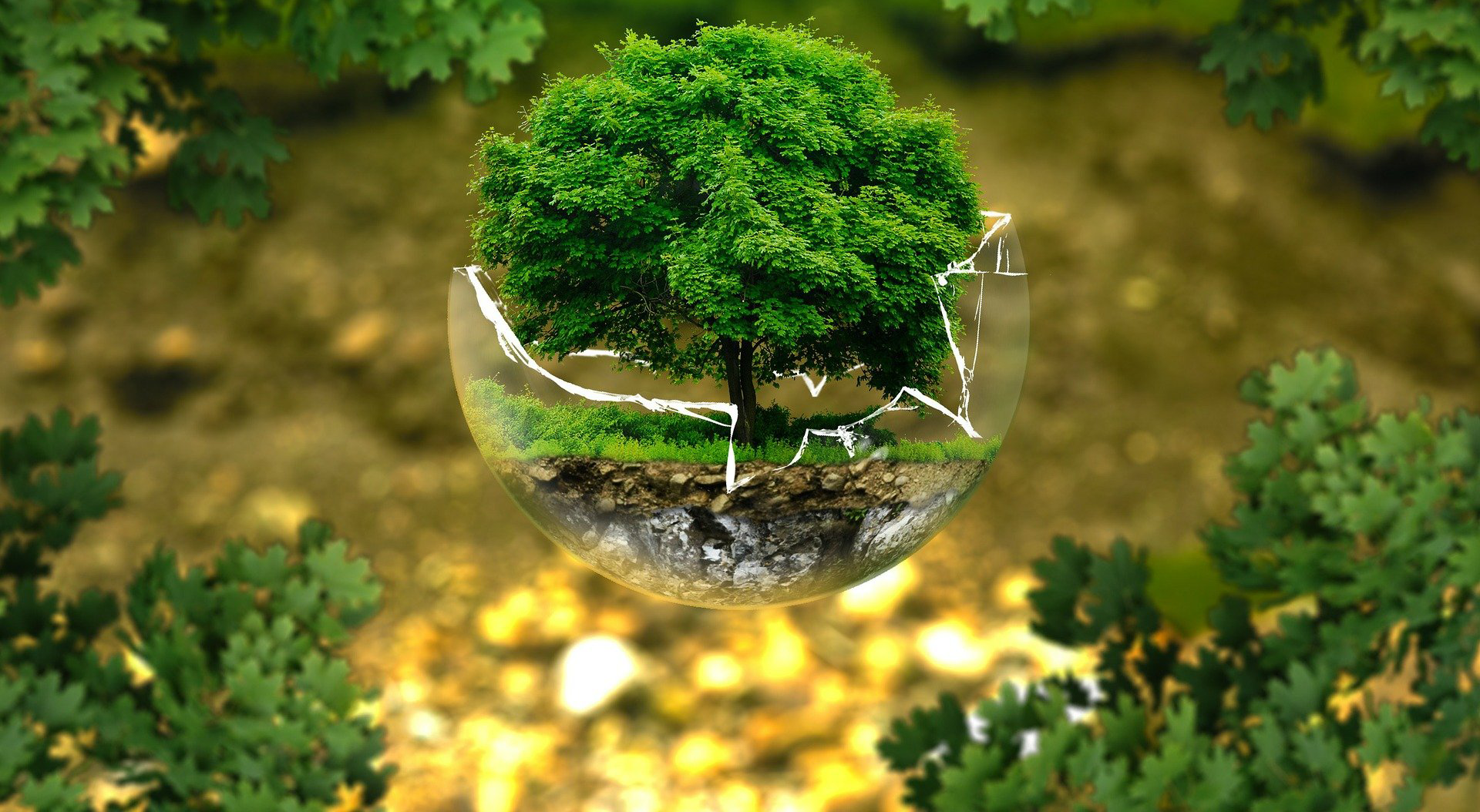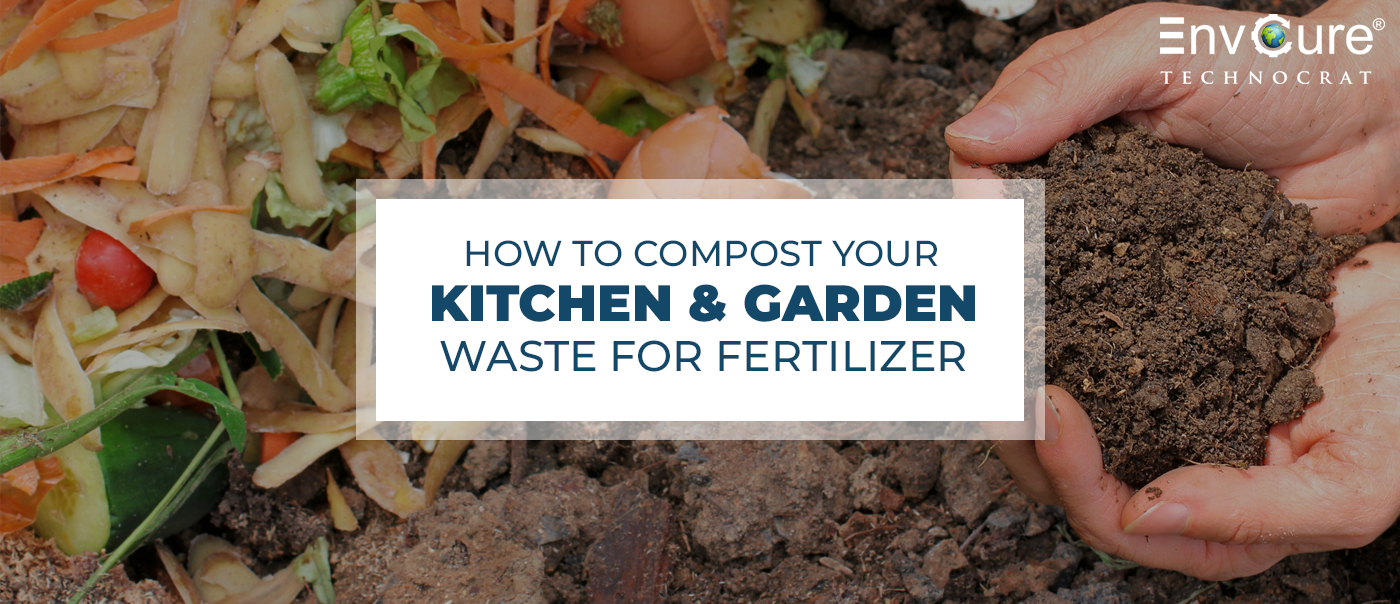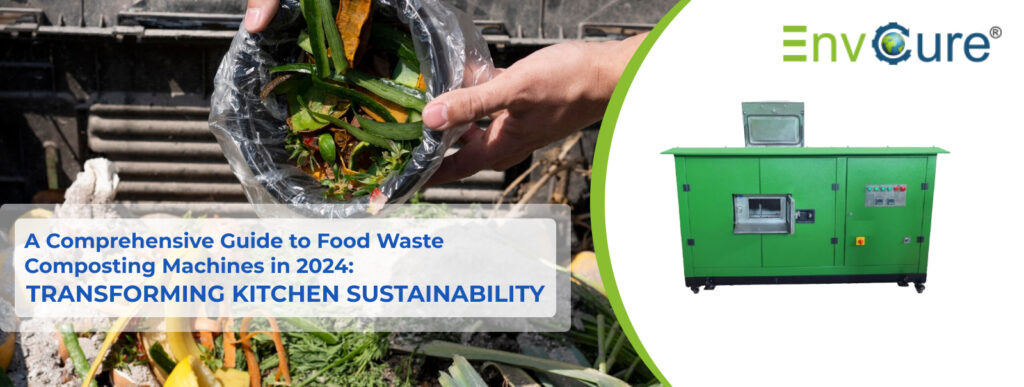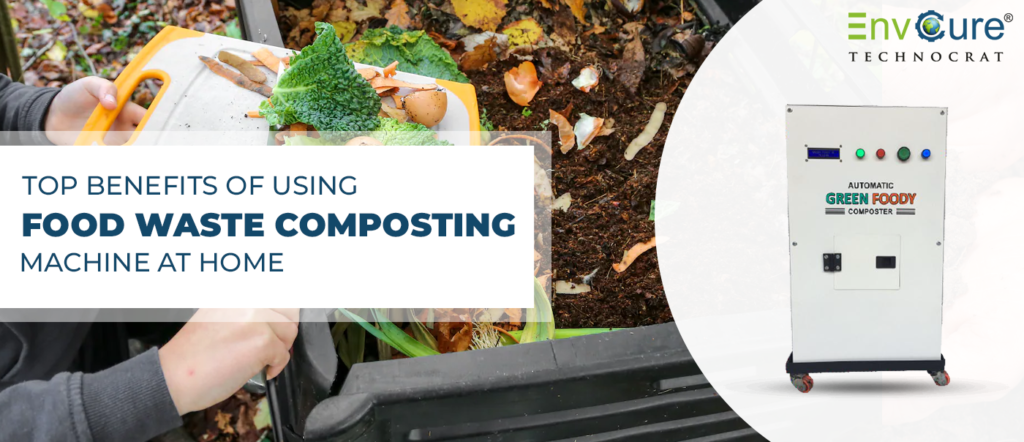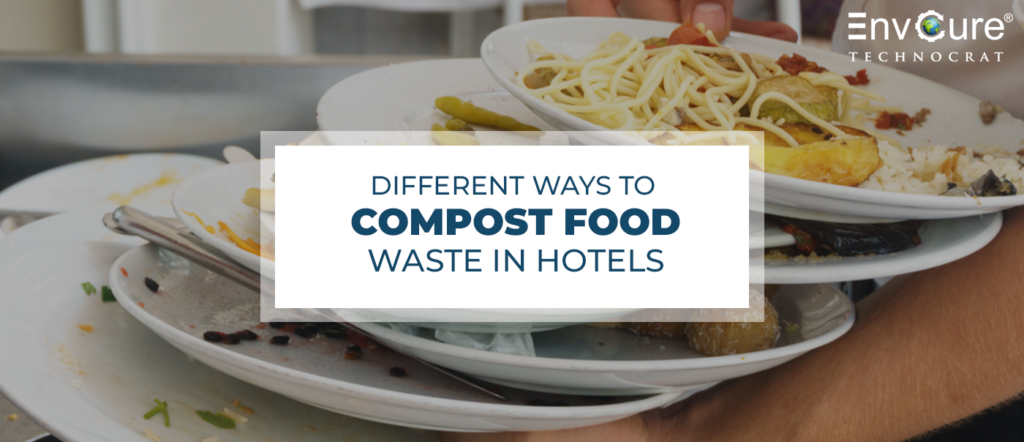The serious threat of accumulating wet waste
In major cities across the world, most of the waste produced is organic or biodegradable waste. This waste needs to be properly managed to avoid polluting our soil and water and to ensure this, it should be collected and disposed of properly. The most common methods of managing wet waste are through landfill disposal or, in some cases, wet waste management plants.
It is illogical to dump wet waste into landfills when it can be treated at home or in the backyard. Whereas these same wet waste generated can be used to make compost for gardens and farms. The compost created improves the quality of soil and helps it in retaining moisture and reduces the waste volume handed over to the government, which is already a huge amount of 1.50 lakh metric tons daily just in India.
Composting helps productively dispose of wet waste, and also provides the opportunity for societies to generate extra income by the sale of compost fertilizer. This compost for gardens and farms can be used as a fertilizer.
Why use food waste as fertilizers?
Waste generated in the kitchen contains organic nutrients that can be used to make compost. By using leftovers and other food scraps, you can turn those stinky kitchen waste items into a highly organic, nutrient-rich product that can be used to grow vegetables or flowers. Before throwing away kitchen waste, be sure to determine if the kitchen waste can go into compost or can be converted into liquid fertilizer.
Composting kitchen waste provides many benefits, including the elimination of unwanted waste and the ability to use fertilizer on your lawn. Composting organic waste is a great way to prevent it from ending up in landfills and releasing methane, a much more potent greenhouse gas than carbon dioxide gas.
To make a nutrient-dense fertilizer, you’ll need to add some natural waste, such as grass clippings and lawn leaves, to your compost. You now know the basics of using kitchen waste as a garden fertilizer, but to become a true expert, check out the following article which covers composting in detail.
What is composting?
Composting is a biological process in which naturally occurring microbes, bacteria and insects break down organic material such as leaves, grass clippings, and some kitchen waste into a soil-like product called compost. In this food waste and other matter go through a decomposition process and form an organic material called humus, a kind of soil improver or fertilizer. By composting, you can recycle your organic materials and turn them into valuable soil amendments.
The end product of composting is nutrient-rich soil that can be used to grow crops, garden plants, and trees. The resulting decomposed material, which often looks like fertile garden soil, is called compost. In composting, food waste and other matter go through a decomposition process and form an organic material called humus, a kind of soil improver or fertilizer.
Composting, known as “black gold,” is a natural process that occurs when water is mixed with brown materials (such as fallen leaves, twigs, and twigs) and green materials (such as grass clippings and fruit and vegetable clippings). Brown material provides carbon for composting, green material provides nitrogen, and water provides moisture to help break down organic matter.
Can you make compost at home?
Yes, compost can be easily prepared at home. Kitchen waste contains essential organic nutrients that can be used to make liquid fertilizer or compost. Food waste is made up of organic matter that can be composted to make fertilizer. The compost fertilizer can be easily produced by using the segregated wet waste at home itself.
Compost bins can be easily bought, but you can also easily make compost bins out of barbed wire, cinder blocks, bricks, and even scrap wood. You can buy a compost bin or make your own, be sure to include a removable lid so you can add more compostable material as you accumulate. If you don’t have space for outdoor composting, you can compost material indoors using a special type of litter box or use an organic waste composting machine.
Easiest DIY way of composting at home:
To compost at home, you will need a container, some organic matter, and water. The container can be anything from a traditional compost bin to a simple pile in your backyard. The organic matter can be fruits, vegetables, grains, coffee filters, eggshells, or any other organic material. Be sure to mix in some soil or compost to provide the necessary microbes for composting. And finally, water the compost regularly to keep it moist. One of the key rules is adding three parts brown waste to one part green waste
- Pick a medium-sized earthen or plastic container and drill 5-6 holes on the edges (more if the container is bigger).
- Place newspapers and cardboard under the container to contain any leaks.
- Line the edges of the container with soil or shredded newspaper.
- Start adding alternate layers of green waste and brown waste. Add some materials like buttermilk or cow dung to accelerate this process.
- When your compost turns into brown, thick, and earthy-smelling dirt, it’s ready to use as a fertilizer.
This process usually takes a long time, instead, you can try other alternatives such as food waste composting machine.
What is an organic waste composting machine?
The organic waste composting machine is a practical device that converts waste into manure in a shorter time as compared to the domestic methods. This machine is used to recycle all kinds of waste and turn it into compost that can be used in many different ways. The waste composter machine is one of the most commonly used machines for the production of fertilizers from organic waste.
You can use the organic waste composting machine to ensure the quality of the organic fertilizer. You can then use the organic waste recycling machine to mix it up and finish composting. It generates food waste, this organic material can be easily broken down into high-quality compost. Organic waste composters naturally convert biodegradable waste or food waste into compost with the help of hemophilic and thermophile bacteria.
Advantages of using an organic waste composting machine?
There are several environmental and economic benefits of using a machine to compost organically, some of which are as follows:
- The composting machine accelerates the composting process, thus decreasing the time required to prepare the compost.
- These machines can help you manage waste efficiently and reduce transportation costs.
- Composting can be sold to a local farmer which is cheaper and better than chemical fertilizer.
- Composting through this machine will help reduce rodents and insects.
The Don’ts of composting at home:
- The remains of meat, fish, fat, and oil should not be added to the compost heap outdoors.
- Avoid pet waste as it contains harmful pathogens that can attract animals to your compost.
- Try to put the waste in small particles and avoid big chunks.
- Do not use the compost bin as a dustbin and randomly put the waste.
- Avoid putting non-biodegradable waste in the container.
Now is the perfect time to get an organic waste composting machine. Composting is the perfect way to reduce your kitchen waste and get healthy soil for your garden at the same time. Try it!
Frequently Asked Questions:
Q.1. How do I start composting?
A. Start by collecting organic waste in a container and place it in an area where it will get sunlight and air circulation. You can also buy an organic composter machine to make this process easier for you. Once your compost has been generated, use it as fertilizer on your plants or flowers, or even sell it!
Q.2. What type of composter should I buy for my kitchen?
A. Envcure is one of the leading organic waste composting machine manufacturers and service providers in waste management activities based in Gujarat, India. Check out the different types of composters at envcure.
Q.3. How do I know if my compost is finished?
A. When your compost turns into a brown, thick, and earthy-smelling dirt, it’s ready to use as a fertilizer.



